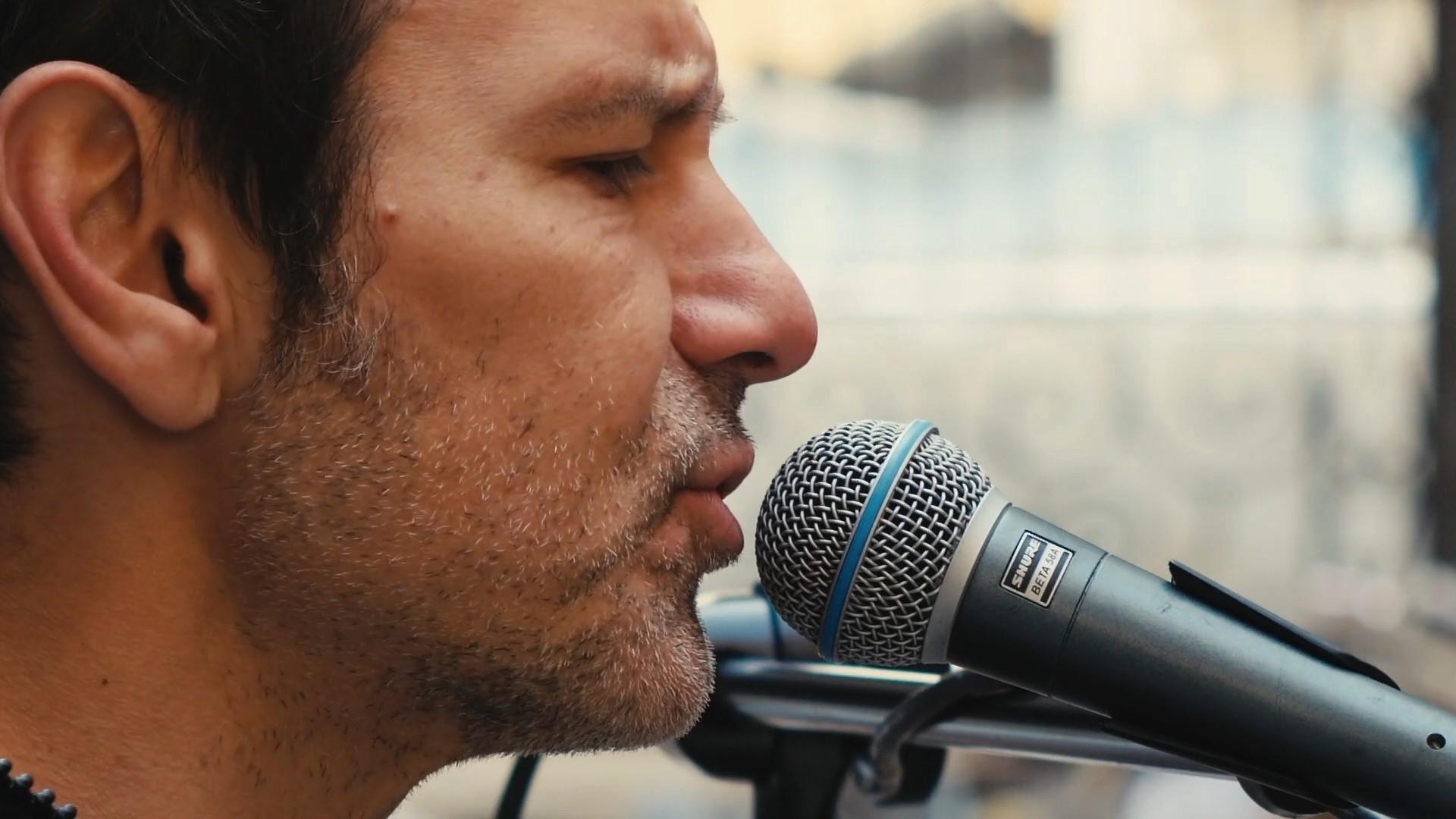Stop fighting in Ukraine: Russian soldier's mum speaks out
- Published
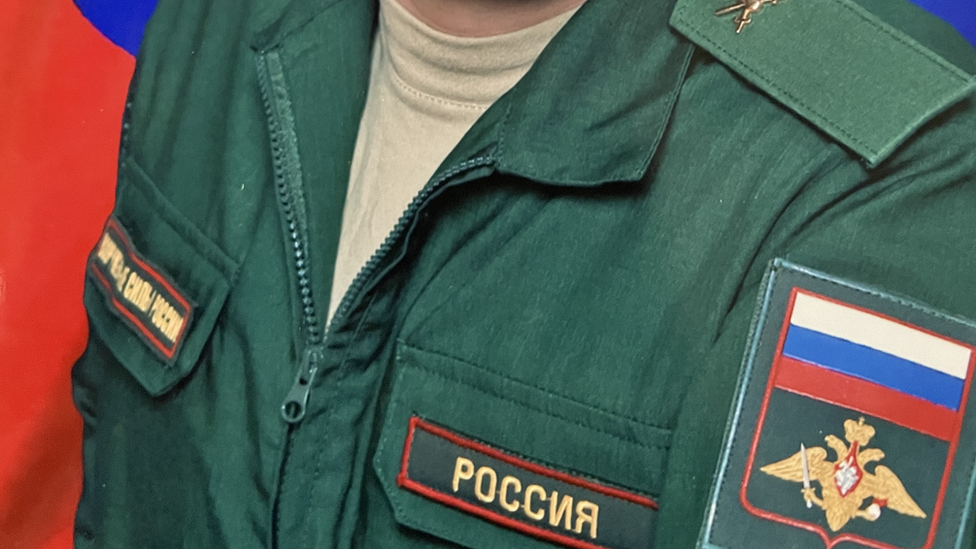
Photos of Valya's son have been deliberately edited to disguise his identity
On 20 February, Valya received a call from her son in the Russian army. His unit was "on exercises" near the Ukrainian border.
"He said they were doing firing practice and living in tents," Valya tells me. "That was the last time I spoke to him."
Four days later, Russian troops invaded Ukraine.
Russia's offensive has brought untold suffering to its neighbour. Since President Vladimir Putin ordered the invasion, thousands of civilians have been killed in Ukraine.
But back home, there are consequences too, for the families of Russian servicemen who have been sent into battle.
Valya is not her real name. Fearing repercussions from the authorities for speaking out, the mother has asked us to conceal her identity.
But she's keen to share her story. She wants to talk to us about her son and what she thinks of the Kremlin's "special military operation".
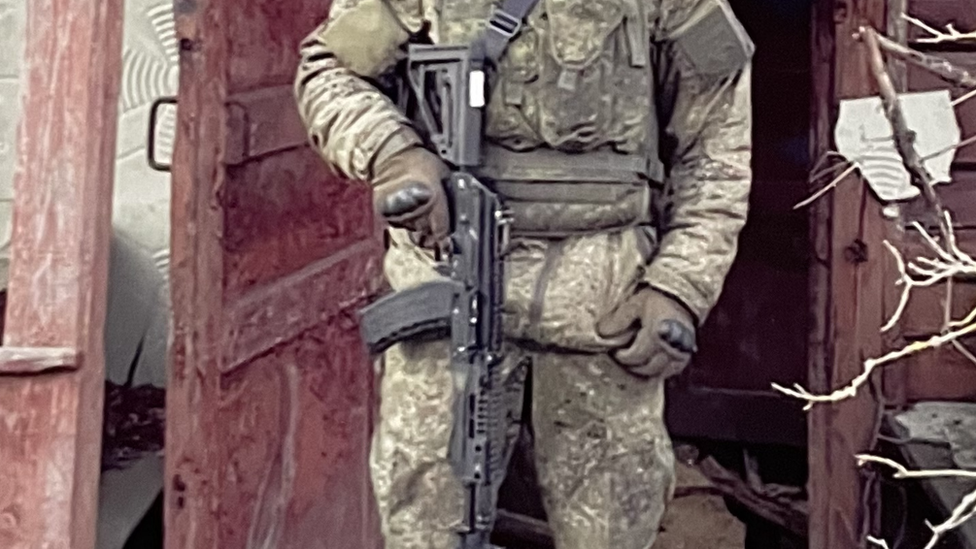
Valya's son was on military exercises near the Ukrainian border in the run-up to the invasion
"At the beginning of March, a sergeant telephoned me from my son's base. He probably called all the parents," she says.
"He told me the lads are fine, that they're in contact with them every day. We kept in touch throughout March and he kept saying that they were fine.
"Then a man claiming to be a friend of my son sent me a message. I didn't know him. He found me on social media. He told me my son's leg had been blown off and that he was dead. I made lots of calls and tried to meet officials. But no one could tell me anything.
"Eventually the sergeant I'd been talking with said to me: 'Your son last made contact on 23 February.'
"'So why have you been calling [to say everything is fine]? Just to calm us down?'
"'Sorry, I'm only a sergeant,' he'd said."
Valya tried to find out more. "I wrote to my son's unit," she recalls.
"I wrote to the military district office. I wrote to the Defence Ministry. And then I wrote to them all again.
"No-one has given me the basic information: where, when and how my son disappeared. All I've been told is that he was taking part in the 'special military operation' and that he is missing."
How many Russian servicemen have been killed in Ukraine? It is a criminal offence in Russia to report anything other than the official figures.
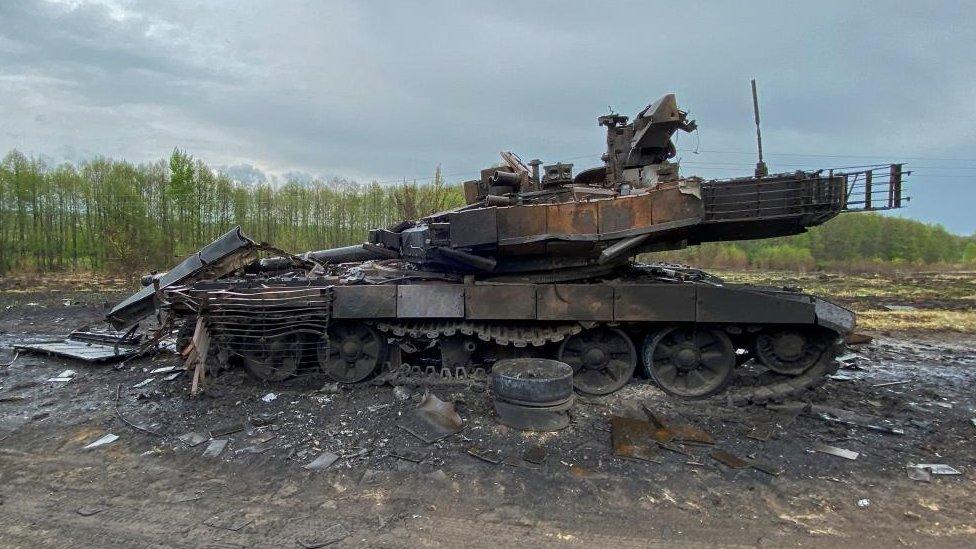
Russia has admitted to sustaining "significant" troop losses in Ukraine but does not give numbers
But official figures are hard to come by. Russia's defence ministry hasn't updated the official military death toll since 25 March.
Back then, it stood at 1,351 Russian soldiers killed. The following month, the Kremlin admitted "significant" troop losses in Ukraine.
In an effort to justify the invasion, the Russian authorities and state media attempt to dehumanise Ukrainians in the eyes of the Russian public.
They denounce Ukrainian soldiers and officials as "ultra-nationalists" and "Nazis". They claim that Ukraine is the aggressor, and Russia the liberator.
But Valya does not see Ukraine as the enemy.
"If our country had been attacked like this, we would also be defending ourselves, like they are. We'd defend ourselves and we would be angry, too," she says.
Many Russians do believe the official government line and support the "special military operation", as it is presented to them on state TV. In Russia the Kremlin controls TV and, therefore, the messaging.
But not completely. Valya is in contact with soldiers' mothers across Russia. She claims that among mothers there is growing resentment towards the authorities over who is being sent to fight in Ukraine.
"They hate the government. They hate Putin," Valya tells me. "They all want this war to end. All the mothers do.
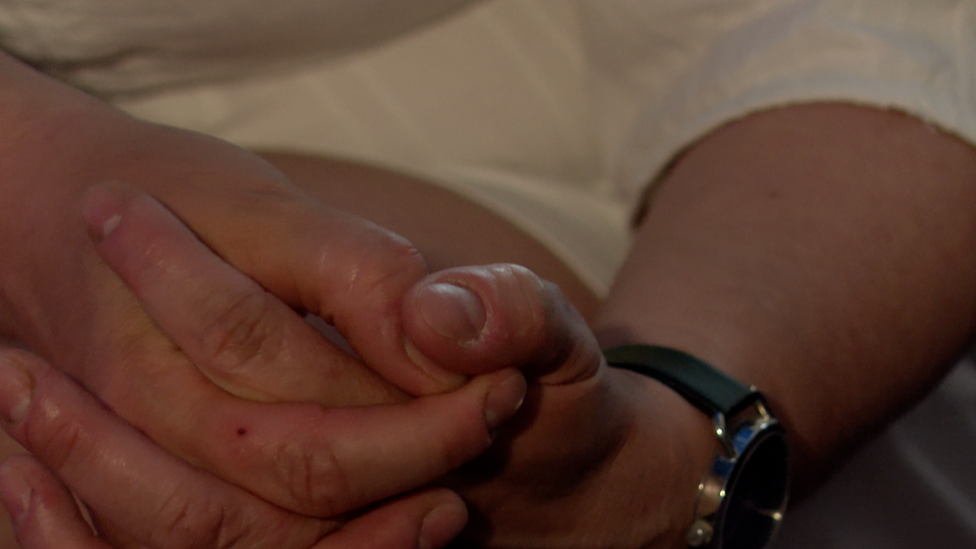
Valya fears repercussions from Russian authorities if she speaks out
"We're the lowest class. We're simple country folk. All the lads doing the fighting are from remote regions of Russia. Not Muscovites. There are no sons of government officials there.
"If the mothers of all the soldiers there now, and the mothers who've lost sons, if they all rose up, can you imagine how big that army would be? And they will. Their nerves will snap.
"Stop. Stop all this. Stop it and protect our children."
Since speaking with us, Valya has received official notification that her son was killed in Ukraine. One more Russian soldier who won't be returning home.

More Ukraine coverage:
Ukraine's rock warrior Slava Vakarchuk: 'We need to be angry'

Related topics
- Published12 April 2022
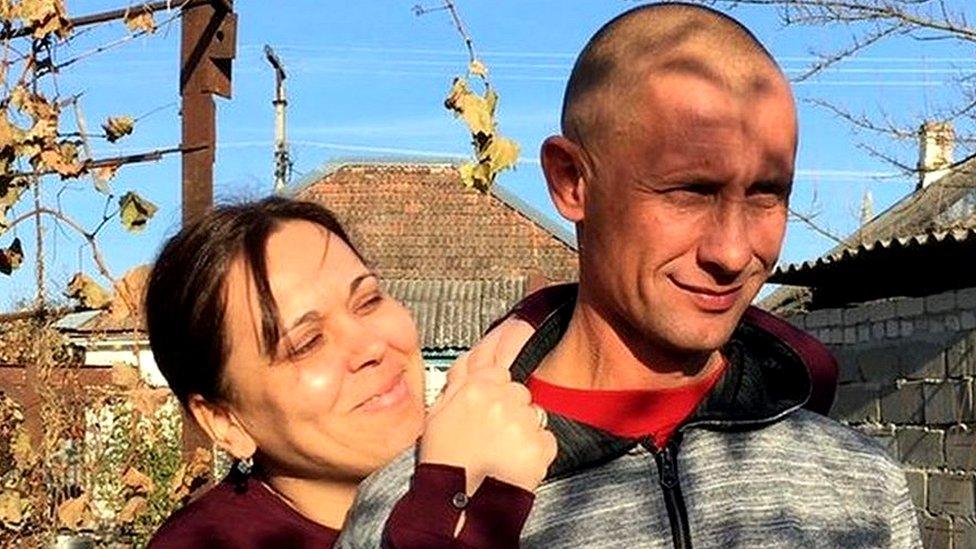
- Published21 March 2022
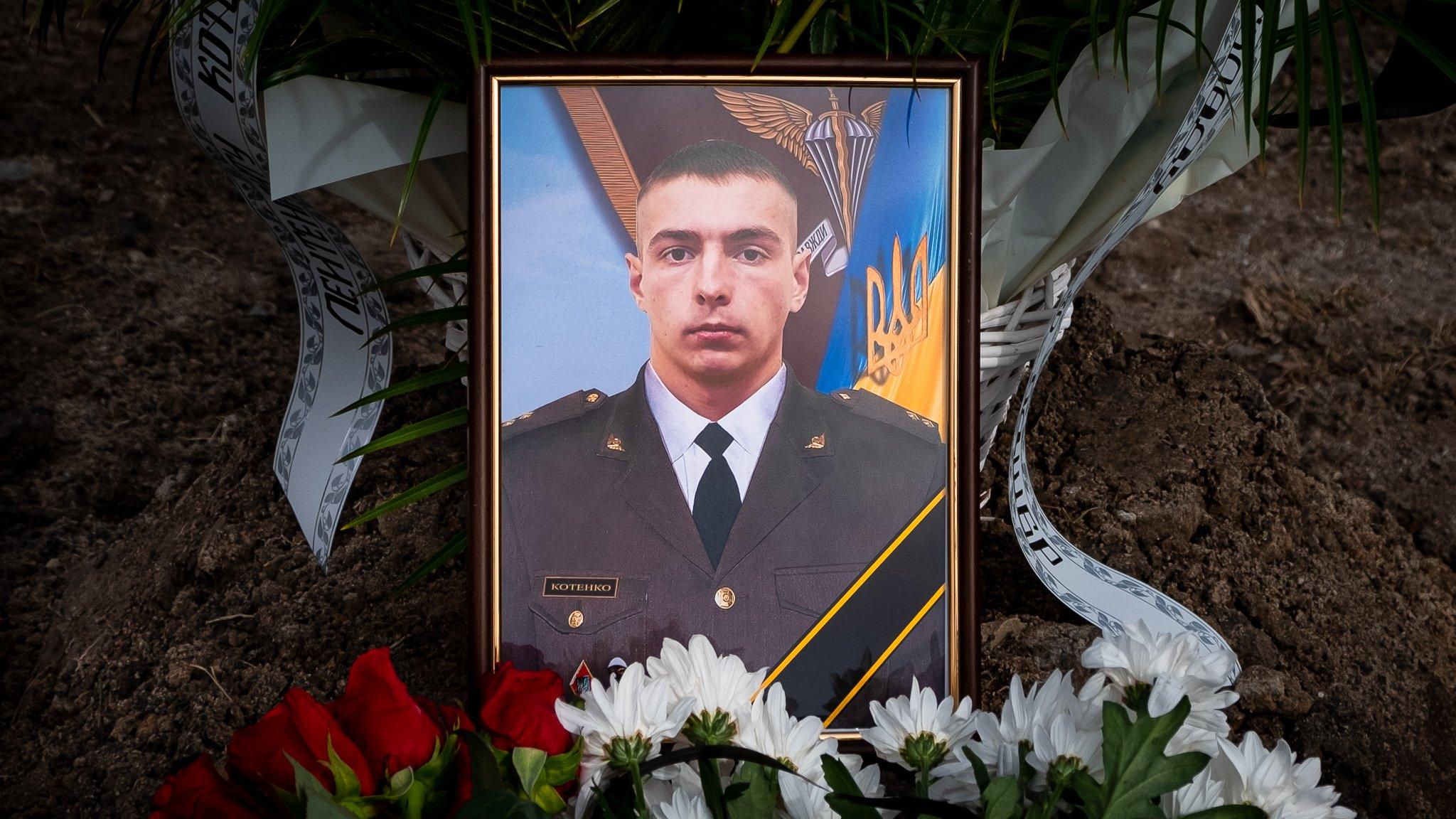
- Published13 July 2022
